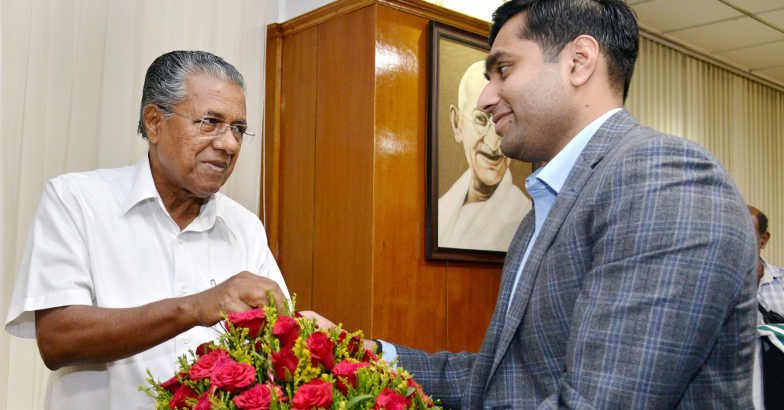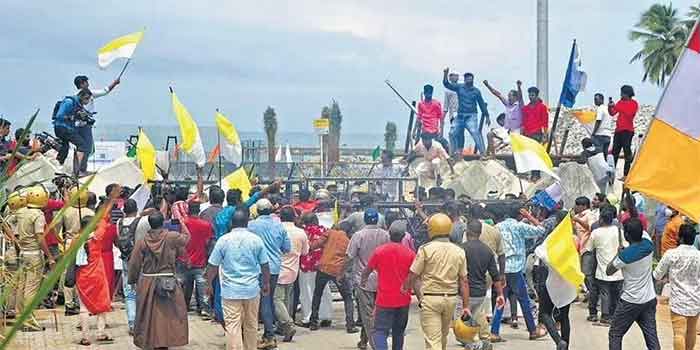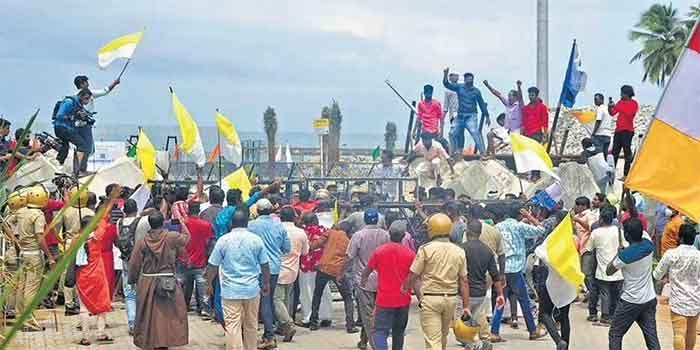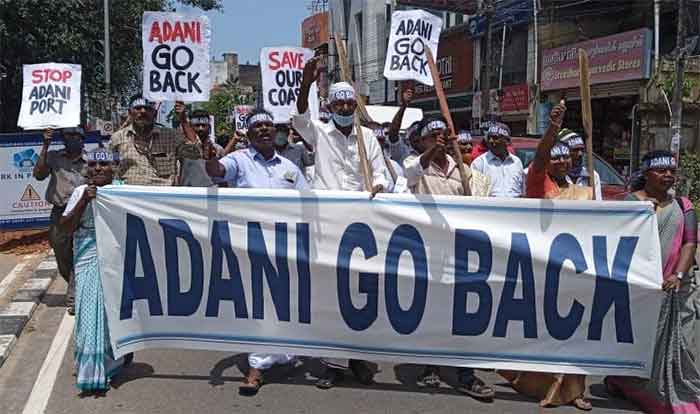
The former Acting Chairman of JN Port, Mumbai, Jose Paul writes: `The shipping ministry has reportedly decided to establish an International Container Transshipment Port at Colachel in Tamil Nadu at an estimated cost of about 27,000 crore. There is already a container transshipment terminal at Vallarpadam in Cochin. About 105 nautical miles south of Vallarpadam, in Vizhinjam, another container transshipment port is under construction.
Colachel will be the third container transshipment terminal to come up about 22 nautical miles from Vizhinjam. In other words, all the three container transshipment terminals will come up within a radius of about 130 nautical miles from Vallarpadam.
Can all the three terminals survive in a highly competitive global container transshipment market? To understand that, one needs to examine the global scenario of container shipping and the container transshipment business’ – The Hindu Businessline, August 25, 2016.
Well, Jose Paul has raised an important economic argument from the standpoint of trans shipment `business’. Both the central and state governments concerned should be answerable to this argument.
But what Jose Paul might have missed is the business’ of various interested parties in mega developmental projects. Apart from non-economic viability of these projects and apart from the close encounters of three mega ports, the interests of the business offinancial scams’ should not be missed. The conclusion of Jose Paul as a solution is `further development’ of Vallarpadam and Vizhinjam. Vallarpadam is already established as a total failure and a financial scam. Vizhinjam is going to be a bigger failure and a bigger financial scam. Nobody has so far explained how the cost of Vizhinjam Transit harbour has increased from a thousand odd crores to around seven and a half thousand crores in such a short time.
The real solution is the formation of a national level people’s commission with representatives of diverse people’s movements to look into the MOUs signed liberally by various political representatives of people, whenever they come to power. What gives them the power to destroy the environment? What gives them the power to destroy the face of this earth? What gives them the power to destroy people’s lives? What gives them the power to destroy various species? Just because they have been `elected’ from a small constituency of one of the species in this planet called the human species? It is the political responsibility of all activists, people’s movements and concerned sections that are struggling on the issues of land, water and forests to put an end to the arrogance of this insignificant section of the human race.
The real suppression of people’s interests starts with the signing of the MOUs by the state governments and the central government for the benefit of corporate interests and of their own. As per the agreement of Vizhinjam Transit Harbour Project, two third of the cost will be born by Kerala State Government and the Central Government and Adani will return one per cent of the profits’ if profit emerges out of such a port. I hope the realbusiness’ can be understood from this deal itself. And the benefits? Destruction of two hills from the Western Ghats, destruction of several beaches including Kovalam beach, destruction of houses of thousands of fisher folk and destruction the most significant oceanic bio diversity region of this country! It is unfortunate that Pinarayi Vijayan and Thomas Isaac as leading personalities in the State Government of Kerala have totally surrendered to the interests of Adani and violated all their promises before the people for `development without destruction of environment, without destroying the lives of people and without corruption’. The coin has turned totally upside down within a few months between before and after the election.
In an open discussion recently, Joseph Vijayan representing the Coastal Watch even read out the new fisheries policy to the Principal Secretary on this issue which said: `Development of Ports often leads to erosion and accretion along Indian coasts. Changes brought about in coastal configuration from such developments impact the coastline, damage fisher habitations and affect the ecology and fisheries. This is a matter of utmost concern affecting fisher livelihoods.’ The decision makers of the Government should at least look into their own policies!
Whether the leaders of the communist parties in India have understood the debates on the implications of the profit oriented development model during the last four decades in India is not my concern at this moment. At least, they should learn from their own experiences of Nandigram and Singur. The Vizhinjam Transit Harbour is only a continuation of the same old mistakes. History repeats first time as a tragedy, second time as a farce, third time as a bigger farce, fourth time as the biggest farce and fifth time……?
K.P. Sasi is an activist and film maker. He can be reached at [email protected]
















































